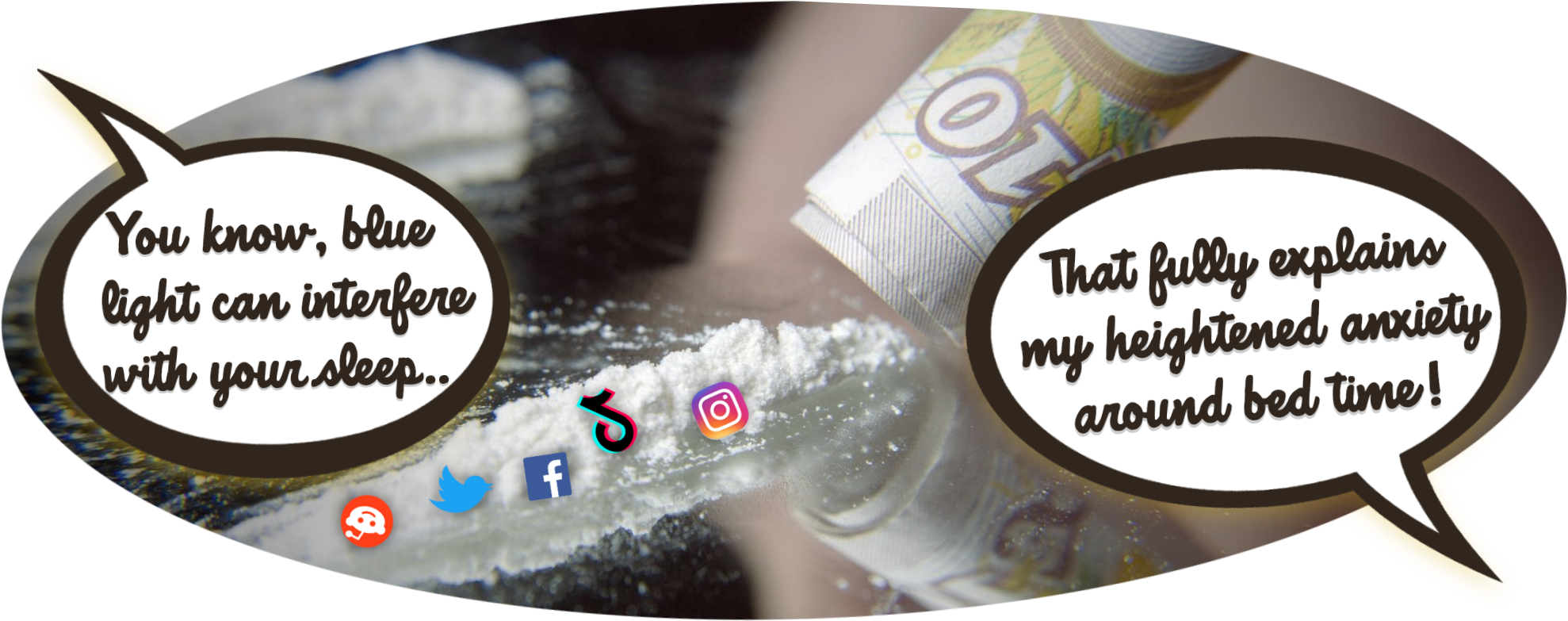I received some feedback from people on Phase II of the AIR method who had difficulty with this step, so I’m expanding on it a bit, and including some advice that worked for me.
If you are frequently feeling drained, anhedonic, frazzled, unfocused, etc etc, the first thing you may want to check in on is your sleep quality. Prioritizing sleep is one of the most —if not the most— important thing one can do to maintain mental health.
It’s known that using a smartphone before bed can interfere with your sleep. Most articles will cite the disrupting effect a phone screen’s blue light has on our circadian rhythm, which… is definitely real, but if you ask me- the thing that’s really keeping you up?
The AIR method is comprised of small, incremental steps, that with time, have a cumulative effect. But that said- if I were forced to pick a single step with the largest outsized importance, it is this:
Charge your phone away from your bed, preferably in another room entirely.
There are two benefits to learning how to do this:
You’ll fall asleep faster and be less likely to be riddled with anxiety just before entering dreamland.
Upon waking, your brain will have a little buffer time to wake up naturally at it’s own pace before getting bombarded with the fire-hose of information from the internet.
If you are used to falling asleep staring at your phone (and grabbing it as soon as you wake up), the whole notion of stopping that may seem insurmountable. But the benefits are very worth it and it is a crucial step on the path to re-learning to see your phone as a tool.
The first few days of no-phone-in-bed can be rough, almost like a drug withdrawal. You’ll likely feel heightened levels of anxiety. Your sleep quality could take a dip for a few days, but the anxiety will pass much faster than you think. Stock up on non-phone forms of entertainment, tell yourself you’re going to try it for a week, and see how it goes.
But… how?
Here are some tips for getting through the first few days:
Keep a magazine, book, e-reader, comic book, puzzle book, etc. next to your bed. Anything without the internet.
Pick something that will really interest you. Into visual art/photography? Get a photo book. Whatever might hold your attention enough to resist the phone for those crucial few minutes as you’re getting ready.
Many people think that when they put the phone down, they should replace it with a challenging book. This is the wrong idea. Get something easy and accessible. Re-read harry Potter, it doesn’t matter!
Magazines are a good option because contain lots of short articles. It’s kind of like scrolling and easier to transition to if you’re one of those types that prefers “infotainment” apps like Twitter/Reddit.
Puzzle books are another option for something that can hold attention without feeding into the distraction urge.
Watching TV before bed isn’t great for sleep either, but because it’s a passive activity it is an improvement over phone use. Try reading material first, but if that doesn’t work, start wherever you can and work your way up.
If you are getting anxiety even just thinking about going to bed without your phone, try taking some melatonin or a sleeping pill an hour before bed to give you that extra push.
Remember the only permanent solution is un-learning the habit. So do whatever it takes in the short term to build momentum.
It will take some time to get used to, but blocking your device from interfering with your sleep is very important. Good sleep is the single most important factor in having a healthy and clear mind. Don’t beat yourself up if you find it difficult at first, your body and brain will get past it quicker than you might expect.
Going further
See how long you can go in the mornings before checking your phone.
Don’t set a time limit, just see how long you can do it. Try an arbitrary goal, like wait until breakfast, or after your shower. The more time you can give your brain to wake up naturally on it’s own, the better. Those notifications can wait. Nobody is expecting you to get back to them ASAP first thing in the morning. Give your mind some breathing room to find it’s footing for the day before bombarding it with the internet.
If you are able- make your whole bedroom into a “no screens zone”.
Buy an old alarm clock if you need one. Don’t put a TV in there. Keeping a dedicated space in your home for sleep really helps the body shift into it’s own “wind down” mode when you’re in it.
If you live in a dorm, studio apartment, or another situation where you only have one room for everything, take efforts to make the bed itself a no screens zone.
It may seem pointless at first to establish seemingly arbitrary boundaries like this, but it’s important to remember that the companies making apps for your phone are using every teensy little trick they have at their disposal to establish a foothold in your life. Removing physical access to a space you spend about one-third of your life in, is a great starting point to reclaiming your time overall.
Once you re-learn what your bed is for, you’ll get sleepy just being in it. And hopefully you'll still be able to fit in some pre-dream reading time.







Thanks for sharing this article with me. My phone is still in my room but not with me in bed. I think it's a great idea to charge it somewhere else and get it out altogether. (This means I need to invest in a real clock, as the phone is the only clock in the house). Here's to returning to old-timey clocks!